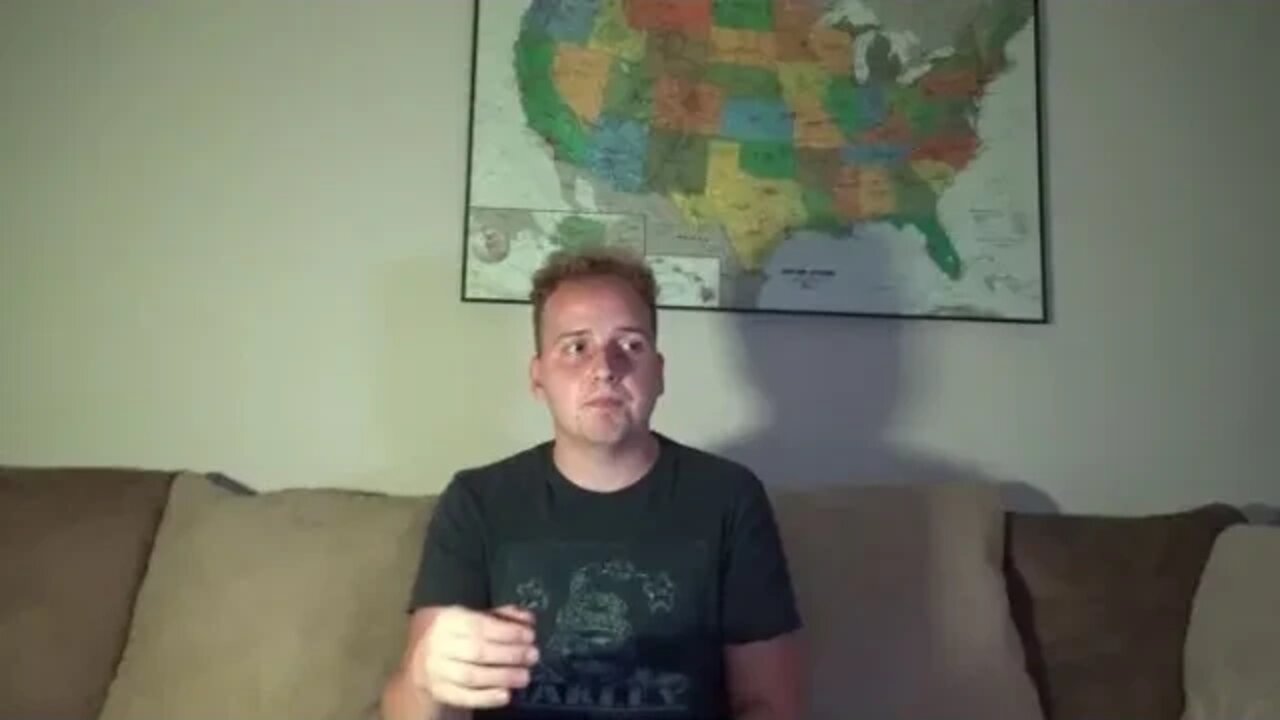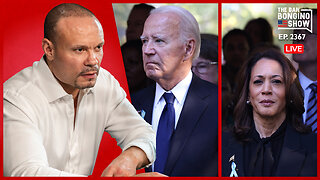Premium Only Content

Adopting the Warrior Mindset for Everyday Life
https://truthandlaw.com/
https://thefreedomcurrent.com/
1. The Problem (Malkuth)
a. Fear
I. Inertia
b. Lack of Courage
I. Not the same thing as fear
c. Comfort
= rejection of truth
2. The Solution (Yesod)
The warrior path – taking everyday life seriously
a. Mental toughness
I. Diligence
- remind yourself not to take the easy way out
II. Calm
- “Find your comfortable place in hell”
b. Purpose
I. Force yourself to habitually verify/reaffirm what your purpose/mission is
- repetition is key
- our goals need to be refreshed by our thoughts/intentions
c. Being present in the moment
I. Approach mundane tasks as an opportunity to improve
II. Reject impulses
- daydream
- go through the motions
d. Develop the “philosophical hunger” (“do more” mindset)
Hunger for truth
I. Overcome the defensive instinct to defend our failures
- ‘There is no point in defending a wrong position
- the truth is belligerent – resist the urge to fight back
truth is perfection – we will always fall short, the warrior chases it anyway
3. The Higher Solution (Tiphereth)
The Philosophical Journey - Coming into a knowledge of truth and natural law
- the warrior is inseparable from the philosopher
I. Begins helpless, as a child
II. Through diligent, hard work, gains knowledge and begins to come out of darkness
III. Every day, he is humbled
- by pushing until exhaustion, he confront his of weakness and fragility
IV. As he develops, becomes more aware of life and nature, more grateful/appreciative
V. As he approaches mastery, he recognizes life’s laws everywhere
- peeling away layers until only the truth remains
- truth philosophy is natural law
Natural Law – universal system that governs human morality
- non-aggression principle
- self-defense principle
4. The Warrior in Peacetime (Chesed)
Many people oppose the warrior concept because they are pacifists
but the warrior rarely kills
a. The warrior trains
I. Self-improvement lifestyle
- working hard to learn skills
b. Obtain high control of your faculties
c. Maximize awareness of the tools you wield
d. Maintain the body, mind and spirit
- so that external factors are less likely to influence him
- and internal factors cannot break him.
Just like the mind, body, and spirit seeks stillness, the warrior seeks peace
5. This is War (Geburah)
People do not understand that we are in a time of war regardless
We are born into chaos
a. The advance of totalitarianism
I. Societal institutions have been overrun/abandoned their posts
II. The enemy has surrounded us
- 2 steps forward, one step back
- playing the waiting game
b. Most people will not recognize it until slavery becomes overt
I. Denial preserves comfort
II. They will only accept reality when their comfortable life is destroyed
III. Threat of having to change their way of life is greater than the threat of slavery
c. The warrior meets the enemy halfway – on the battlefield
I. Willing to sacrifice
II. Caring about the future
III. Fulfilling moral obligation
- heavy armor – heart light as a feather
6. Anger – The Lost Emotion (Hod)
just like war, our society looks down on anger
a. Weak anger
I. Defensive reaction to being hurt or offended
II. Explosive, then fleeting (molotov cocktail)
- like a temper tantrum, regretted shortly after
III. Drains the energy of its host
- like a spirit being channeled
immediately reactionary
b. Strong Anger
I. Righteous indignation
ex. Angered by injustice
- child abuse/animal abuse
II. Can be felt, used, and set aside by the person carrying it
- like a slow burn, with potential to become a wildfire
increasing pressure, until breaking point
7. The Lost Word – NO (Netzach)
anger can be a profound tool, but pales in comparison to the lost word
a. The response to encroaching evil
b. Resistance to immorality
I. Most people live in everyday resistance to truth
II. The warrior lives in a flow state (with the current of truth)
III. But when necessary, the warrior utters the forgotten word
- unstoppable immovable resistance
c. Anger leads to war, The word NO leads to peace
I. It forces the wrongdoer to commit
II. NO states the claim of human dignity
-
 4:32
4:32
BuddyBrown
5 hours ago $0.09 earnedMeet Our New ICE DIRECTOR Tom Homan! | Buddy Brown
1.81K3 -
 LIVE
LIVE
The New American
2 hours agoNew Global Reality | The New American Daily
1,354 watching -
 1:22:08
1:22:08
Russell Brand
4 hours agoTrump's Plan To DISMANTLE The Deep State + Biden & Dems Vow To "TRUMP PROOF" America! - SF489
153K76 -
 2:58:17
2:58:17
The Charlie Kirk Show
3 hours agoThe Trump Mandate + A MAGA Senate Agenda | Beck, Gingrich, Scott | 11.8.24
146K -
 1:00:09
1:00:09
The Dan Bongino Show
6 hours agoDemocrats Go To War...With Each Other (Ep. 2367) - 11/08/2024
826K2.92K -
 2:00:21
2:00:21
Benny Johnson
4 hours agoLegacy Media PANICS, Blames Conservative Podcasters for Trump VICTORY | ‘Cable News is DEAD!’
114K68 -
 1:04:11
1:04:11
Steven Crowder
5 hours ago2024 Post-Election Special Scrapyard Show Featuring Jimmy Kimmel Crying
184K131 -
 1:56:36
1:56:36
Film Threat
16 hours agoGLADIATOR II EARLY REACTION + TONS OF REVIEWS | Film Threat Livecast
57.2K1 -
 2:06:02
2:06:02
The Shannon Joy Show
6 hours ago🔥🔥LIVE Exclusive W/ Dr. Peter McCullough! Has PHARMA Already Captured The Trump Administration?🔥
52.9K9 -
 DVR
DVR
Midnight's Edge
5 hours agoKathleen Kennedy's new Star Wars trilogy & More, feat. Kabrutus | MEiTM #637
40K